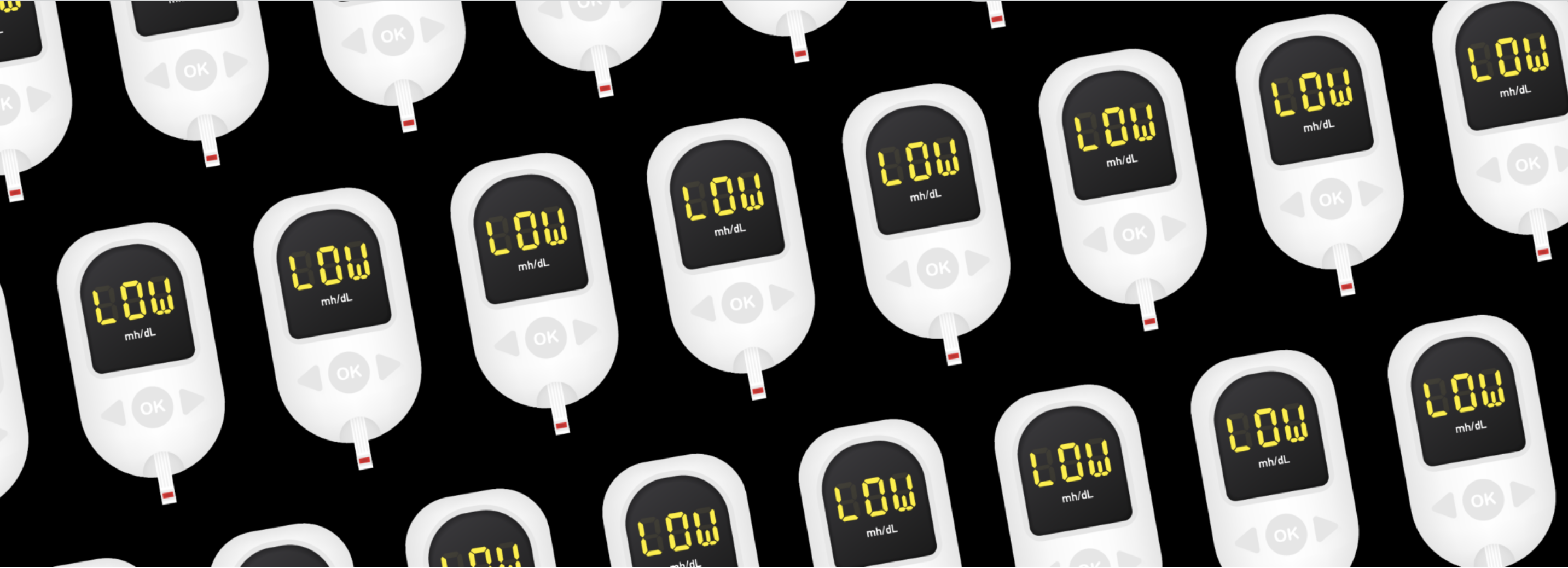How To Help Your Parent After a Diabetes Diagnosis Without Becoming Their Parent
Written by: Kourtney Johnson
6 minute read
June 2, 2023
While supporting your parent with their diagnosis is a loving thing to do, there is a fine line between helping enough and being invasive.
There is no doubt that having a parent diagnosed with type 2 diabetes may be overwhelming, surprising and even upsetting. Many people want to thank their parents for taking such good care of them growing up and see the opportunity to help them manage their diabetes as a way to do so. However, it’s important to offer support without becoming a parent in this situation.
How to care for your loved one without “parenting” them
When it comes to supporting your parent, there are ways to do so in a graceful manner without overstepping boundaries.
Remember that your parent is still independent and capable of taking care of themself. Instead of trying to take over everything, ask them how you can help. Keep in mind they’re still trying to figure this new diagnosis out themselves so they might not know how you can help them yet. Be patient with them. Have a conversation with them to come up with a plan together, making sure they’re the one leading it. Here are a few questions or recommendations you can suggest.
- Do you want me to send a text in the morning to remind you to check your blood glucose level (BGL)?
- Would it be helpful for me to simply listen as you vent about the new diagnosis?
- Would you like me to call the pharmacy for refills?
- Can I help you find coupons, patient assistance programs or contact your insurance company about medications?
- Do you want me to schedule your next endocrinologist appointment?
- Are you interested in connecting with other people who have diabetes, and would you like me to connect you to support groups?
Starting diabetes management
A big part of diabetes management is checking BGLs. However, it can be overwhelming to have to prick your finger several times a day and your parent may avoid doing so. Continuous glucose monitors (CGMs) are small devices typically worn on the arm or abdomen, which measure levels in real time. CGMs provide peace of mind by alerting people of high and low BGLs so action can be taken more quickly to prevent emergencies. They’re a great option to ease the burden of diabetes management and the data collected can be shared directly with you via a mobile app.
If your loved one is okay with it, you can also use their CGM data to be their advocate in making medical decisions like making medication changes or choosing the right doctor for them. However, avoid passing judgment or being quick to scold or recommend actions when you see their numbers are out of range. Instead, ask them from the get go what they would like you to do if alarms do go off.
Sharing CGM data can feel like an intimate invasion of privacy so it’s okay if they don’t want to share that.
Making changes after a diagnosis
There are many adjustments that take place after a diabetes diagnosis, from adding in different foods to increasing activity to having more doctor appointments. Fortunately, there are ways you can help your parent adjust more easily.
Learn what you can
A big piece of diabetes management is understanding the basics. If you prefer to learn from others, consider taking classes at the local hospital or clinic. Otherwise, there are plenty of resources online like the American Diabetes Association, Diabetes Daily and Beyond Type 2.
It’s also crucial that you learn about diabetes stigma to avoid perpetuating any yourself. Stigma is formed by false beliefs and lack of information, and can be external or internal. For example, a common stigma is that people cause diabetes themselves based on their lifestyles and diets.
Unfortunately, stigma can affect mental health and make diabetes management more difficult.
Especially during holidays when there are different foods available and a change in routine. Refrain from saying comments like “Are you sure you want to eat that?” or “I don’t think we should go to that restaurant because the food has so many carbs.”
Keep in mind that it’s important to focus on what you need to know and not burden yourself with learning too much, too quickly. This will help avoid caregiver burnout and getting overwhelmed—dealing with a new diagnosis is overwhelming enough!
Offer to help them create new habits
A new diabetes diagnosis may require making lifestyle changes. To keep your parent from feeling isolated in this process, you might want to offer to help or even join them. Habits you can work on together may include:
- Taking a daily walk
- Drinking more water or cutting back on sugary beverages
- Quitting smoking
- Replenishing your diabetes bags each week (such as with low snacks)
- Meal prepping (such as cutting up fruits and veggies for the week or making lunch for the next day)
- Prioritizing mental health through therapy or stress management
- Going to bed 30 minutes earlier for better sleep
Creating new habits takes time, and unlearning habits that no longer serve them does too. Remember to provide support and encouragement as they try to do both.
Ask for their input
It’s crucial that you avoid making assumptions about what your loved one can or can’t do. A diabetes diagnosis doesn’t have to limit your loved one. They can still enjoy the same hobbies and activities they did before—just with a bit of preparation now.
Ask them how they feel their diabetes management is going and offer help if it’s something they may need. There may be times where it appears they’re not “trying” or “caring” about their diabetes management, when in reality they’re overwhelmed or don’t have the resources they need.
Do your best to maintain open communication, and ask questions to inform yourself of the situation before taking action (if needed). The fewer assumptions you make about your loved one, the less likely there is to be resentment in the relationship.
There’s no doubt that having a parent diagnosed with diabetes is tough for both people. While you might be tempted to step in and be there for every little thing, it’s important to ask them what they need. Whether it’s a listening ear or an advocate at the doctor, there are several ways you can support instead of micromanaging your parent’s care.
Learning whatever information you can in manageable amounts can help you become a better helper, while stepping in to help your parent with habit creation might be just what they need. The biggest takeaway is to ask for their input and honor their boundaries while lending a helping hand with their diabetes.
Editor’s note: Educational content for newly diagnosed people with diabetes is made possible with support from Abbott, makers of the Freestyle Libre 3 system, a founding partner of Beyond Type 2. Editorial control rests solely with Beyond Type 2.
Related Resources

The biggest barbecue day of the year is the 4th of July! Celebrating the 4th...
Read more

Hypoglycemia and severe hypoglycemia are two things against which all people with diabetes should be...
Read more

Whether or not you have type 2 diabetes, you must eat. You must also pay...
Read more


